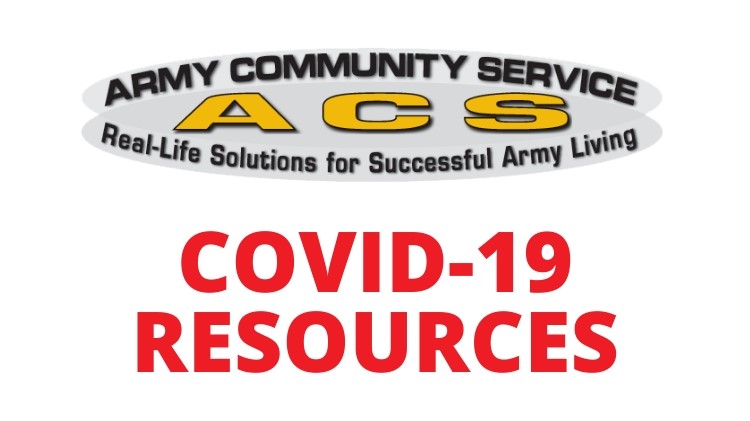COVID-19 Resources and Crisis Communications from OSD FAP & Technical Experts
(Government and non-Government[1] sources)
Military One Source
· Landing page (updated continually): https://www.militaryonesource.mil/coronavirus
· OSD FAP-produced article: Navigating Relationship Safety during the COVID-19 Pandemic: https://www.militaryonesource.mil/family-relationships/family-life/preventing-abuse-neglect/navigating-relationship-safety-during-the-covid-19-pandemic
· OSD FAP-produced article: Staying Safe while Staying Healthy (Tips for Military Families): https://www.militaryonesource.mil/family-relationships/family-life/preventing-abuse-neglect/staying-safe-and-healthy
Resources for pregnant women, parents with young children, and military families
· Guidance from CDC on COVID-19 for Pregnant Women (updated continually): https://www.cdc.gov/coronavirus/2019-ncov/specific-groups/pregnant-women-and-children.html
· From Zero to Three- Tips for parents of small children for activities, wellness, and how to talk to your children about coronavirus: https://www.zerotothree.org/resources/3210-tips-for-families-coronavirus
· From the National Child Traumatic Stress Network- Parent/caregiver guide to helping families cope with the stress of the coronavirus: https://www.nctsn.org/resources/parent-caregiver-guide-to-helping-families-cope-with-the-coronavirus-disease-2019
· From Uniformed Services University Center for Traumatic Stress- Helping Homebound Children during COVID-19 Outbreak: https://www.cstsonline.org/assets/media/documents/CSTS_FS_Helping_Homebound_Children_during_COVID19_Outbreak.pdf
· From Uniformed Services University Center for Traumatic Stress- Taking Care of Your Family During Coronavirus: https://www.cstsonline.org/assets/media/documents/CSTS_FS_Corona_Taking_Care_of_Your_Family.pdf.pdf
Resources for clinicians
· From Uniformed Services University Center for Traumatic Stress: https://www.cstsonline.org/resources/resource-master-list/coronavirus-and-emerging-infectious-disease-outbreaks-response
o (includes fact sheets on the following topics): Supporting Patients During Quarantine or Isolation
o Helping Patients Concerned about Coronavirus: A Guide for Psychiatrists
o How Clinicians and Other Healthcare Personnel Can Help Concerned Patients
o Supporting Military Families
o How Healthcare Personnel Can Take Care of Themselves
Resources for child welfare professionals
· From HHS Children’s Bureau- COVID-19 Guidance (updated continually): https://www.acf.hhs.gov/cb/resource/covid-19-resources
· New HHS Guidance on Caseworker Visits via Videoconferencing: https://www.acf.hhs.gov/cb/resource/guidance-caseworker-visits-videoconferencing
Tips on technology-based victim services/remote victim advocacy
· From the National Network to End Domestic Violence- Using Technology to Communicate with Survivors During a Public Health Crisis: https://www.techsafety.org/digital-services-during-public-health-crises
· From the National Network to End Domestic Violence- Best Practices When Using Mobile Devices for Advocacy: https://www.techsafety.org/resources-agencyuse/mobilecomputing-bestpractices
· From the National Network to End Domestic Violence- How to Operate as a Remote Workplace During a Public Health Crisis: https://www.techsafety.org/remote-work-public-health-crisis
Resources for victim advocates
· From the National Network to End Domestic Violence- resources on the response to the coronavirus: https://nnedv.org/latest_update/resources-response-coronavirus-covid-19/
· From the National Network to End Domestic Violence- coronavirus guidance for domestic violence shelters: https://nnedv.org/wp-content/uploads/2020/03/Library_Coronavirus_Guidance_for_DV_Shelters_NNEDV_12MAR2020.pdf
Resources for domestic abuse victims
· From the National Domestic Violence Hotline- Staying safe during COVID-19: https://www.thehotline.org/2020/03/13/staying-safe-during-covid-19/
· From the National Domestic Violence Hotline- Safety planning with children: https://www.thehotline.org/2013/04/12/safety-planning-with-children/
[1] All cited non-government sources are federal grant recipients of DoD, DOJ, or HHS
